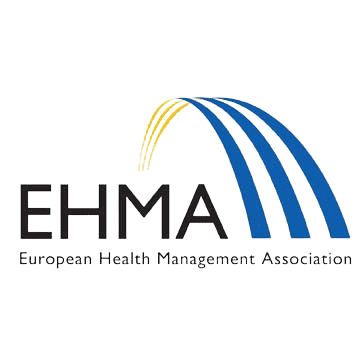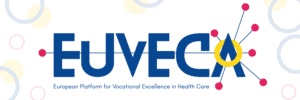The European Health Management Association (EHMA) is a Belgium-based non-profit membership organisation that focuses on enhancing the capacity and capability of health management to deliver high-quality healthcare. EHMA’s vision is to support the spread of knowledge on excellence in health management at all levels: systemic, organisational and individual. In doing so, EHMA strives to improve the sustainability and effectiveness of health systems and services and the well-being of Europe’s citizens and communities. EHMA operates at an international, European and national level, with a membership of over 50 organisations and 30+ individuals and a broader network with over 1,000 key stakeholders ranging from managers, educators, professionals and more. EHMA’s activities revolve around three key workstreams: (i) membership-focused actions and network engagement, (ii)research and EU project work focused on dissemination and stakeholder engagement, and (iii) events and workshops, such as EHMA Annual Conference and the Yearly Programme Directors’ Group Meeting.

European Health Management Association
(EHMA)
Role in the project:
EHMA is the partner with the overall responsibility for dissemination and will elaborate the overall dissemination strategy for the project on regional and European levels, including a plan for scaling-up EPVE beyond the project period. EHMA is responsible, together with ECHA, ESNO and SDEO, for dissemination on European level, which includes the project website, e-newsletters, European webinars, European scientific articles, and the final European conference.


